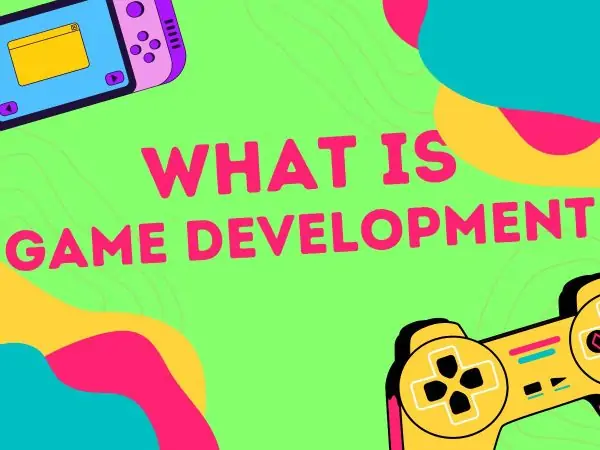Introduction:
Game development is the process of creating video games. It involves designing, programming, testing, and producing games for various platforms like consoles, computers, and mobile devices. Game development is essential because it brings entertainment and joy to millions of people worldwide. With the rise of the gaming industry, the demand for skilled game developers is increasing rapidly, offering exciting career opportunities for those interested in technology and creativity.
What is Game Development?
Game development is the art and science of creating interactive digital experiences. It encompasses various disciplines, including game design, programming, art, sound design, and quality assurance. Game developers use their skills to bring ideas to life and create immersive worlds where players can explore, compete, and interact.
The Game Development Process:
The game development process typically involves several stages, including concept development, pre-production, production, testing, and release. During pre-production, developers brainstorm ideas, create concept art, and design gameplay mechanics. In the production phase, programmers write code, artists create assets, and designers implement levels and features. Testing ensures that the game is free of bugs and glitches before it is released to the public.
- Concept development
- Pre-production
- Production
- Testing
- Release
Skills Required for Game Development:
Successful game developers possess a diverse set of skills, including programming languages like C++, Java, or Python, graphic design, 3D modeling, animation, storytelling, and problem-solving. They also need strong communication and collaboration skills to work effectively in multidisciplinary teams.
- Programming languages
- Graphic design
- 3D modeling
- Animation
- Storytelling
- Problem-solving
Learning Game Development:
To learn game development, aspiring developers can enroll in formal education programs like computer science or game design courses. They can also take advantage of online resources, tutorials, and forums to learn programming languages, game engines, and development tools.
Game Development Tools and Software:
Game developers use a variety of tools and software to create games, including game engines like Unity or Unreal Engine, graphics software like Adobe Photoshop or Blender, and version control systems like Git. These tools streamline the development process and help developers bring their ideas to life more efficiently.
- Game engines such as Unity, Unreal Engine, and Godot for creating game environments.
- Graphic design software like Adobe Photoshop and Illustrator for creating artwork and animations.
- Integrated development environments (IDEs) like Visual Studio and IntelliJ IDEA for coding and debugging.
- Version control systems such as Git and SVN for managing code repositories.
Game Genres and Trends:
Games come in various genres, including action, adventure, role-playing, simulation, and puzzle games. Understanding different genres and player preferences is essential for creating successful games. Additionally, staying updated on industry trends, such as virtual reality, augmented reality, and mobile gaming, helps developers anticipate market demands and innovate in their creations.
Career Opportunities in Game Development:
The gaming industry offers diverse career opportunities for skilled professionals, including game designers, programmers, artists, animators, writers, and quality assurance testers. With the growing demand for interactive entertainment, game developers can find employment in game studios, technology companies, educational institutions, and freelance projects.
- Game designers
- Programmers
- Artists
- Animators
- Quality assurance testers
Game Development Pipeline and Best Practices:
The game development pipeline refers to the step-by-step process that developers follow to create a game from concept to release. Best practices include setting clear goals and deadlines, communicating effectively with team members, iterating on designs based on feedback, and prioritizing player experience and engagement throughout the development cycle.
Future of Game Development:
The future of game development is exciting and full of possibilities. Advancements in technology, such as artificial intelligence, machine learning, and cloud gaming, will continue to reshape the gaming landscape. Additionally, emerging platforms like virtual reality, augmented reality, and streaming services offer new opportunities for innovation and creativity in game design.
Conclusion:
In conclusion, game development is a dynamic and rewarding field that combines technology, art, and creativity to create immersive digital experiences. By mastering essential skills, learning industry tools and trends, and embracing innovation, aspiring game developers can build successful careers and contribute to the vibrant and growing gaming industry.
Join Our Community
Stay connected with us and become a part of our vibrant community on social media:
Get In Touch
Have questions, suggestions, or feedback? We’d love to hear from you! Reach out to us through our contact page.
At Universe 2.0, we provide information, tutorials, guides, etc., to grow the game industry.
Visit us at: universe-2.com

